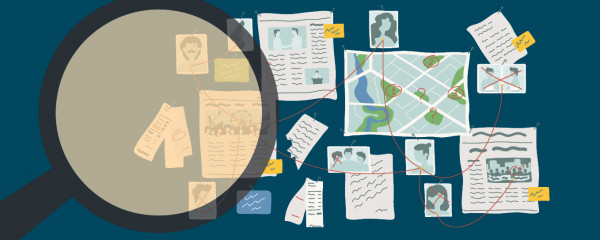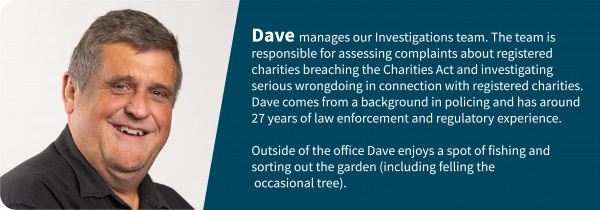How does Charities Services handle complaints?
Updated 27 September 2024
[![]() 3 minutes to read]
3 minutes to read]

Information from the public provides us with valuable insight into the charities we regulate and contributes to our understanding of charities and how we can help them comply. We value all complaint information and keep this information in our complaints database.
Charities Services is a risk-based regulator. We investigate concerns of serious wrongdoing and significant breaches of the Charities Act 2005. We receive hundreds of concerns every year. We do not investigate every concern we receive as a full investigation isn’t always the right approach.
When a complaint is raised with us, it needs to be related to the legal obligations of registered charities under the Charities Act 2005 (the Act).
New Zealand’s charitable sector is large and diverse with almost 28,000 registered charities, so the bulk of our focus is on issues that can cause significant harm to public trust and confidence in charities. These are things like serious wrongdoing or deliberate breaches of the Act.
Where suitable, we may also pass complaints onto the right government agency to deal with. The types of complaints we may refer to other agencies include allegations of criminal activities, employment disputes and health and safety issues. You can read more about the kind of complaints we investigate and don’t investigate on our complaints page(external link).
When a complaint leads to an investigation
If our initial inquiry into a complaint uncovers evidence of serious wrongdoing, we can start investigating a charity.
Serious wrongdoing is defined in the Act as:
- unlawful or corrupt use of funds or resources
- actions that constitute a serious risk to the public interest
- actions that constitute an offence, and
- actions that are oppressive, improperly discriminatory, or grossly negligent, or that constitutes gross mismanagement.
Once an investigation begins, we look at the evidence, and prepare a case. Depending on the seriousness and risk of the issues, there are a few different powers that we and Te Rātā Atawhai (the independent Charities Registration Board)(external link) can exercise. These include:
- formal letters of expectation
- warnings
- monitoring
- deregistration.
Where we have the legal power to act, we will always assess the nature of the complaint and its level of risk to inform the outcome.
You can find out more about our complaints process by reading our compliance approach(external link).
Our website has more information about making a complaint(external link). Before you get in touch, we recommend you have a look. If you have any questions, don’t hesitate to ask info@charities.govt.nz.



